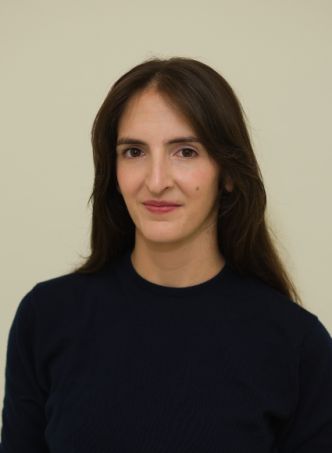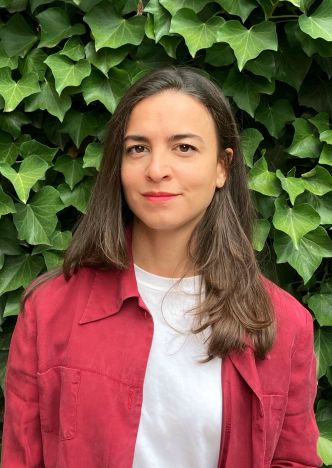Contact
DH Lab E-Mail:
dh@khi.fi.it
Meet The Team

Rafael Brundo Uriarte, Ph.D.
Digital Research Coordinator
Phone: +39 055 24911-14
E-Mail: rafael.uriarte@khi.fi.it
Rafael Brundo Uriarte received his Ph.D. degree in 2015 in Computer Science from the IMT School for Advanced Studies Lucca, Italy. He has won several prestigious grants (e.g., Marie Curie IF in TU Wien and Brains to the South in Cagliari University) and has a strong research and publication record in the area. Along with his research projects related to blockchain, machine learning and cloud computing, he has been conducting with keen enthusiasm Digital Humanities projects over the past five years. Examples of such projects include a digital platform for Venetian Music (Ca’ Foscari University), the digitization of the 17th century choir books of St. Mark’s (Ca’ Foscari University) and the assessment of the socioeconomic impacts of creative events using new technologies (IMT Lucca). Moreover, he has held seminars, and participated and organised international conferences to discuss the complementary nature of Computer Science and the Humanities.
Fields of Research
- Digital Humanities
- Machine Learning
- Data Management
- Textual Analysis
- Blockchain
Digital Humanities
This collaboration stems from the potential of Digital Humanities to bring together, to the benefits of both, different expertises and traditions: many approaches and models from the Computer Science field can be applied and it must face the challenges of new requirements defined by humanities experts; and the Humanities can adopt different analytical methodologies and visualisation tools, which, when tailored for the needs of experts, can provide novel perspectives and enable new empirical inquiries and theoretical contributions. We aim to bring to KHI new competences to revise its digital positioning and long-term strategy as well as to create pioneer Digital Humanities projects, with a particular focus on integration and utilisation of new methodologies to realise the immense potential of the existing resources and standalone projects. Our vision goes beyond the improvement of the digital infrastructure of the existing rich institutional archives and intend to developing an innovative and inclusive Digital Humanities research strategy for the KHI. Moreover, the collaboration will provide a venue for discussions related to: the appropriate technological approaches and standards considering the needs and priorities of the domain experts; the impact of technology in the Humanities; the potential contributions of Digital Humanities to the field of Computer Science; and adapting theoretical assumptions of these areas to computational models and to prepare results to be validated and interpreted by Humanities experts. Moreover, we plan to use the new technologies to improve collaboration and the experience of external experts, while promoting the research portfolio and the invaluable resources of the institute.

Alessandra Failla
Research Collaborator, Digital Humanities
E-Mail: alessandra.failla@khi.fi.it
Alessandra Failla holds a Master’s degree in Digital Humanities and Digital Knowledge from the University of Bologna and a Bachelor’s degree in European Art History from the University of Heidelberg. Her academic background merges art history with digital methods, focusing on the quantitative analysis and visualization of archival data. Alessandra’s previous role as a cataloguer at the Photothek of the Kunsthistorisches Institut inspired both her “Bürkelens” project, which analyzed Ludwig von Bürkel’s photo collection and its impact on the Photothek’s holdings, and her thesis, which developed a user-friendly framework for analyzing photographic archival data from the Institute. This framework, using Python and Jupyter Notebook, supports effective data analysis and visualization for researchers with varying technical skills. Alessandra will be joining the Digital Humanities Lab, where she will focus on developing and applying digital tools and methods in the field of Digital Humanities to explore and enhance the resources of the Kunsthistorisches Institut in Florenz.
Fields of Research
- Quantitative analysis of archival data.
- Data visualization and digital storytelling.
- User experience design for data presentation.

Dr. Chiara Capulli
Borsista post-doc
E-Mail: chiara.capulli@khi.fi.it
Chiara Capulli obtained her PhD in History of Art from the University of Cambridge in 2024, with an AHRC Lander Scholarship (2017-21) and a Bibliotheca Hertziana predoctoral fellowship (2022-24) supporting her research on the impact of the 1529 guasto of Florence on the city’s artistic and architectural heritage. Prior to her doctoral studies, she earned her BA (2013) and MA (2015) from La Sapienza in Rome and an MPhil (2016) from Cambridge. She also served as a studentische Hilfskraft at the Kunsthistorisches Institut in Florence (2015).
In addition to her primary research, Chiara has developed a keen interest in digital humanities methodologies, offering training to students and professionals at the Universities of Exeter (2019-21), Cambridge (as a Cambridge Digital Humanities Data School Methods Fellow, 2020-21), the Bibliotheca Hertziana (Digital Art History Initiative, 2023-24),and the Università Telematica Internazionale Uninettuno (2023-24). Her work on the Getty-funded ‘Florence 4D’ project (2019-21) involved art historical research, intern training, and the development of pipelines for research-based 3D modeling, historical data mapping, and standardization.
Chiara has also participated in initiatives assessing the effects of recent earthquakes on Central Italy’s cultural heritage and the role of art historians in recovery efforts. She has now joined the AC(H)E project at the KHI to explore digital methodologies for evaluating and reinterpreting sources related to past earthquake damage in L’Aquila, Italy.
In addition to her primary research, Chiara has developed a keen interest in digital humanities methodologies, offering training to students and professionals at the Universities of Exeter (2019-21), Cambridge (as a Cambridge Digital Humanities Data School Methods Fellow, 2020-21), the Bibliotheca Hertziana (Digital Art History Initiative, 2023-24),and the Università Telematica Internazionale Uninettuno (2023-24). Her work on the Getty-funded ‘Florence 4D’ project (2019-21) involved art historical research, intern training, and the development of pipelines for research-based 3D modeling, historical data mapping, and standardization.
Chiara has also participated in initiatives assessing the effects of recent earthquakes on Central Italy’s cultural heritage and the role of art historians in recovery efforts. She has now joined the AC(H)E project at the KHI to explore digital methodologies for evaluating and reinterpreting sources related to past earthquake damage in L’Aquila, Italy.
Fields of Research
- Religious artistic patronage in late medieval and Renaissance Italy
- Digital Humanities
- Cultural Heritage in the aftermath of disasters and catastrophic events